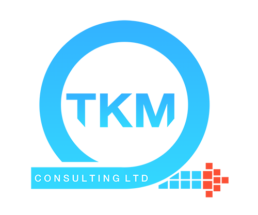Interviews are like marmite; you either love them or hate them. However, all of us would have at some point, had to undertake an interview in order to secure employment and pay those bills!
In Part 1 of this series, I discussed Scrum Master recruitment from the perspective of the interviewer. As well as having been the interviewer, I’ve been interviewed on several instances. Part 2 of this 2-Part series is based of those experiences; I will be offering advice and guidance from the perspective of the interviewee.
Scrum Master Recruitment
To Scrum or not to Scrum…
Applying for Scrum Master roles can sometimes be pretty precarious business. This is because some companies advertise Scrum Master roles but when you read the job description it’s actually a Project Manager role in an ‘Agile’ organisation. Let’s be clear, a Project Manager and a Scrum Master are NOT the same thing. Also, there are often hybrid roles (e.g. Delivery Manager / Scrum Master); these types of roles can be a good option if you want to widen your responsibilities. However, be careful not to muddy the waters: ensure a RACI is defined in order to circumvent any conflicts of interest.
The Interviewee

You’ve now decided whether you want a pure or hybrid Scrum Master role; applied and landed an interview; what next?
Scrum Master interviews come in many different shapes and sizes. You may be asked to run a retrospective with the team, or decipher a dummy Kanban board, whilst some interviewers choose to keep things simple, so to say, and just ask questions without a practical element. Put simply, try to be prepared for every eventuality.
However, it is important to remember that you’re not only selling your skills, you’re selling you as a person too. I say this because the interviewer is trying to determine how you’d fit into the culture of the company. With that in mind, the key thing to remember is to be yourself. So, be confident and show your personality; being overly professional and polished will not help employers get a true sense of who you are.
During the interview you will be asked a number of situational based questions. Be sure to answer these questions in a structured manner and try your best to provide good examples. Utilising the STAR method is one way of ensuring the former (I’ve outlined it below in case you haven’t heard of it).
Situation: Set the scene and give the necessary details of your example.
Task: Describe what your responsibility was in that situation.
Action: Explain exactly what steps you took to address it.
Result: Share what outcomes your actions achieved.
Seal the Deal

It is important to embody the Scrum values, whilst not waffling on or merely reciting the Scrum guide. I’d advise you use real life examples; not only will they help mitigate waffling/reciting, the examples will be easier to recall (especially helpful if interviews aren’t for you) and will help convey your character to the interviewer. Also, don’t pretend to know something you don’t. Accept your weaknesses and turn them into strengths: instead of trying to make something up, honestly saying you do not know something gives good insight into your character. Rest assured, the hiring organisation know you cannot and will not know everything and that someone can grow into a role, so try not to force it.
Prepare questions to ask the interviewers, for example, “What are the biggest challenges you’re currently facing”. Questions such as this allow you to gain insight in to the kind of environment you may be walking in to. As the interviewee, you’re not just there to answer questions; this is very much of an opportunity for you to “interview” them too. The interview is a two way conversation to see if the culture and the company is something you’d want to be a part of.
Interview Top Tips
Below are some interview top tips:
-
Clearly define expectations of a Scrum Master.
- Comparing your personal definition of a Scrum Master with the expectations of the Project Manager and/or Product Owner will help you decide whether this is the right role for you.
- To understand the scope of the role and get a sense of how far you will be expected to deviate from Scrum and Agile, I suggest looking out for roles and responsibilities in the job description, but also explore this with the recruiters.
-
Can you see Agile?
It is quite easy to differentiate between an Agile and non-Agile working environment. Take a look around the workspace (maybe ask for a tour if they haven’t offered one). Do you see anything on the walls? Can you see or hear collaboration? Keep your senses peeled for all things Agile or the lack of it.
-
Ask questions!
- As I mentioned, this interview is also the opportunity for you to see if this role/company is right for you. So, don’t be afraid to ask questions; the more you know about the working environment, the better.
- I once asked whether I could see their Daily Scrum; turns out it was for 30 people… enough said.
- Try to use non-leading, open-ended questions where possible as this well help you gather as much information as possible about the company whilst helping you come across as unbiased and genuine.
-
Where is the Product Owner?
The existence or availability of the Product Owner(s) can tell you a lot, namely about your ability to do Scrum. If the presence of the Product Owner(s) is felt in the workplace, it is usually a good buy-in sign.
-
Be Yourself!
The most important advice I can give you is just to be yourself in the interview. You have done incredibly well to make it this far; clearly you have the knowledge and the employer is interested in you! Being authentic will help you know whether this workplace is a good fit for you and vice versa for the employer. So remember, no matter the outcome, an interview is a learning experience.
If you have to lead an interview or want insight into what recruiters are looking for whilst recruiting a Scrum Master, be sure to check out my blog on Scrum Master recruitment from the perspective of the interviewer.
Your personal inventory for AgiliTEE.
